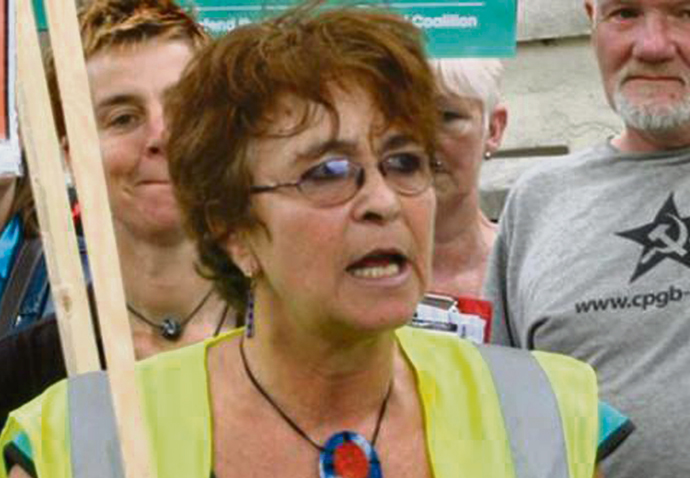‘We’ve never seen things get this bad’
Hospital staff are pushed to breaking point as patients face long waits
Friday, 6th January 2023 — By Tom Foot

THE Whittington Hospital is full up with staff pushed to breaking point and official figures showing one in five patients have been left waiting in ambulances outside the A&E for over an hour.
Delays to the “handover” between paramedics and emergency departments – caused by bed and staff shortages – are part of the reason ambulance workers walked out on strike before Christmas.
NHS England figures for a week in late December show 68 (23 per cent) patients taken to Whittington A&E by ambulance were left waiting in the vehicle for at least one hour before being admitted. Bed occupancy figures show the hospital is operating at full capacity.
The crisis is said to be a direct consequence of government NHS policies over the past decade combined with a near doubling of patients attending A&E in a “dreadful increase in sickness”, possibly connected to the recent energy bills and supermarket price rises.
Shirley Franklin, who campaigned for over a decade in support of the Whittington, said: “Let’s be clear, this is a government-created mess, not an NHS-created mess.
“More privatisation is not going to help. It’s about funding the NHS properly – why should we pump money into private sector?”
The Defend Whittington Hospital Coalition, which was disbanded, helped save the A&E department at the hospital with a massive campaign in 2010.

Shirley Franklin
Ms Franklin said: “It’s so ironic as more than 10 years ago they tried to close the A&E at the Whittington. We stopped them. But what they did succeed in doing was to close Chase Farm. There must be a spin-off from that closure. They shut down beds at that time too.”
She added: “But we need to ask, why are so many people getting ill? It is because they are living in difficult circumstances, things are so tough for people and it has a tremendous impact on health.”
UCL professor Sir Michael Marmot, who was recently knighted in the New Year’s honours list, has led research showing a direct correlation between poverty and ill health.
Ms Franklin said: “Rishi Sunak and the government are blaming Covid. If it is Covid, why have they advised us to stop being careful and wear masks?
“And they aren’t paying the nurses and staff properly, so people aren’t going to want to do it. It’s important they stick to taking industrial action this year – it’s the only way.”
Ambulance staff walked out on Tuesday, December 21, and are expected to do so again on December 28.
Ian Higginson, vice-president of the Royal College of Emergency Medicine, said yesterday (Thursday) there was a “crisis situation” in “most, if not all” of the emergency departments across the country, adding: “For many of us working in emergency medicine we’ve never seen it as bad as it is now.”
Terry Nicholls, from the College of Paramedics, said queues of ambulances were routinely waiting outside A&Es, adding that the delays were also affecting morale as “patients remain in the community desperate for the care they can provide”.
To combat the high demand, an additional 22-bed ward was opened for patients at the Whittington who require inpatient care over the winter.
The trust has also set up 20 virtual ward “beds” – an online service – to give special attention to patients at home who do not need to take up hospital beds.
The Whittington said: “Like NHS services across the country, Whittington Health is extremely busy as we care for large numbers of patients arriving at our emergency department needing care and treatment.
“Our staff are doing everything we can to treat everyone as quickly and safely as possible, but we apologise to anyone who has to wait for a long time.”
Government ministers say the root cause of the handover crisis is beds being taken up by patients whose discharge has been unnecessarily delayed.
A spokesperson for the Department of Health and Social Care said it is working to increase capacity across the NHS.
“Our number one priority this winter is to keep patients safe and ensure they can access care when and where they need it, which is why we are taking action to reduce ambulance handover delays and boost urgent and emergency care performance,” they said.